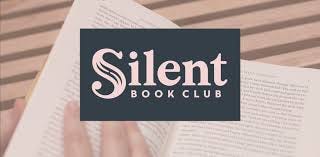Beyond the Algorithm: Reader-Driven Spaces for Book Lovers
Where can readers build community and support the books we love?
For years, Amazon and big corporations have dominated the book world, making it harder for independent bookstores, small publishers, and reader-driven communities to thrive. But readers don’t have to settle for convenience at the cost of supporting the book industry we love. Whether you’re looking for a more ethical way to buy books, track your reading, connect with fellow readers, or simply reclaim your reading life from corporate influence, there are alternatives. These reader-friendly platforms and resources offer a way to discover, share, and enjoy books while keeping the focus where it belongs—on stories, community, and independent voices. I have joined or increased my usage of these bookish spaces in the past year:
Bluesky is a decentralized social media platform that fosters independent communities, including many dedicated to books and reading. If you have been following children’s and young adult authors on various platforms, you might find them on Bluesky these days. Unlike corporate-owned networks, it prioritizes user control and open-source development, making it a great space for readers to discuss books without algorithmic interference.
Silent Book Club is a global movement where readers gather in cafes, bookstores, and online to enjoy quiet, uninterrupted reading time together. Unlike traditional book clubs, there’s no assigned reading—just a shared love for books and a space to escape corporate-driven reading trends.
PangoBooks is a marketplace for buying and selling used books directly from other readers, providing an alternative to corporate retailers. With a focus on sustainability and community-driven commerce, it allows book lovers to support individuals rather than major resellers.
Libro.fm offers audiobooks that directly support independent bookstores, letting readers choose where their money goes instead of funding monopolies. With a vast selection and a monthly membership model, it’s the ethical alternative to Amazon-owned Audible.
Bookshop.org is an online bookstore that financially supports independent bookshops with every purchase, offering a convenient way to buy books while keeping local stores thriving. Unlike Amazon, its mission is to sustain independent bookselling and resist corporate domination of the book market.
The StoryGraph is a data-driven reading tracker and recommendation tool that helps readers discover books based on mood and content, without corporate influence. Unlike Goodreads, it’s independently owned, ad-free, and designed to prioritize reader experience over profit. Check out this fabulous interview with TheStoryGraph founder, Nadia Odunayo.
New platforms, apps, and resources are constantly emerging, and I’m always discovering fresh spaces where readers can connect and enrich our reading lives. Here are some additional reader-friendly alternatives I’m exploring as I seek out more ways to build community and support independent voices:
Fable offers a unique platform for virtual book clubs, allowing readers to connect over shared interests and engage in meaningful discussions. With curated reading guides and a focus on mental wellness, Fable fosters intimate communities outside the realm of large corporations.
BookWyrm is a decentralized, open-source social platform for tracking your reading and sharing reviews. As part of the Fediverse, it enables interaction across various independent servers, promoting a community-driven experience free from corporate oversight.
Chirp provides limited-time deals on audiobooks without subscription fees, allowing readers to purchase and own titles at discounted prices. By partnering directly with publishers and authors, Chirp supports the literary community while offering affordable listening options.
BookBub is a free service that alerts readers to limited-time free and discounted ebooks matching their interests. By subscribing, you can discover new authors and support a diverse range of voices outside mainstream platforms.
These additional platforms empower readers to build communities and support creators, offering enriching experiences beyond the influence of major corporations.
Reading is more than just a solitary act—it’s a way to connect, share, and build a community with others who love books as much as we do. These resources offer more than just alternatives; they create spaces where independent bookstores thrive, readers support one another, and book conversations aren’t driven by algorithms or corporate interests. Whether you're discovering your next great read, chatting with fellow book lovers, or shopping in a way that uplifts independent voices, these platforms help keep the reading world vibrant and reader-focused.
If you’d like to connect, you can find me on Bluesky, track your reading with me on The StoryGraph, and browse my bookshop on PangoBooks.
Happy reading!
-Donalyn




I switched to StoryGraph, Libro.fm, Chirp, and Kobo Plus (instead of KU) over the last year to try to support smaller businesses. I’m liking them a lot! Plus they are less expensive overall!
Thank you for this list! I’m debating on bluesky….learning a new platform is daunting. But I miss what I had on twitter (community). I have loved storygraph.